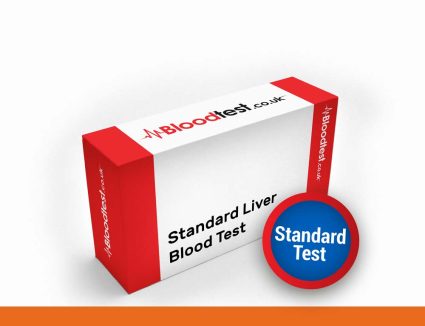Your Ultimate Resource for Liver Blood Testing: Invaluable Insights for Patients
Understanding the Significance and Function of Liver Blood Tests in Health Monitoring

A liver blood test in Bracknell is an essential diagnostic tool that provides a detailed evaluation of your liver's functionality and overall health status. This vital test measures the levels of various enzymes, proteins, and substances produced by the liver, which act as crucial indicators of liver health. By examining these components, healthcare professionals can identify early warning signs of potential liver diseases such as hepatitis, cirrhosis, and fatty liver disease. Given the liver's pivotal role in metabolising nutrients, detoxifying harmful substances, and synthesising essential proteins, regular health monitoring is vital for maintaining overall well-being and preventing serious health complications.
The testing process typically involves analysing blood samples for specific indicators, including alanine aminotransferase (ALT) and aspartate aminotransferase (AST). Elevated concentrations of these enzymes may point to liver injury or inflammation, which could necessitate further assessments and interventions. By recognising the importance of these findings, individuals can take proactive steps towards protecting their liver health and enhancing their overall quality of life.
Considering the liver's crucial functions in sustaining general health, a liver blood test in Bracknell can uncover underlying health issues before they escalate into more severe conditions. Routine testing is especially important for individuals with risk factors, including a history of alcohol consumption or obesity, as it facilitates timely detection and intervention, ultimately leading to significantly improved health outcomes.
 Identifying the Key Reasons for Pursuing a Liver Blood Test
Identifying the Key Reasons for Pursuing a Liver Blood Test
The decision to undergo a liver blood test in Bracknell can arise from numerous compelling motivations. Symptoms such as jaundice, characterised by the yellowing of the skin and eyes, chronic fatigue, abdominal discomfort, and unexplained fluctuations in weight may prompt individuals to seek testing. Furthermore, those with a history of excessive alcohol consumption or a family history of liver disease are strongly recommended to undergo regular evaluations to closely monitor their liver health.
Additional risk factors, including obesity, diabetes, and certain prescribed medications, can exacerbate liver conditions, necessitating vigilant monitoring. For example, the prevalence of non-alcoholic fatty liver disease (NAFLD) has surged in the UK, often linked to obesity and metabolic syndrome. If you identify with these risk profiles, it is crucial to engage in open conversations with your GP regarding the need for tailored testing options that cater to your health circumstances.
Moreover, routine liver function evaluations are imperative for individuals receiving treatments that could compromise liver health, such as long-term medications for chronic conditions. Regular monitoring allows for the early identification of adverse effects, enabling timely adjustments to treatment plans when necessary.
By comprehending the factors that necessitate a liver test, individuals can empower themselves to make informed health decisions and adopt a proactive approach to preserving their liver health.
Essential Strategies for Effectively Preparing for Your Liver Blood Test
Proper preparation for a liver blood test in Bracknell is vital to ensuring the accuracy of the test results. Generally, it is advised to fast for approximately 8 to 12 hours prior to the test. This fasting period ensures that your blood sample accurately reflects your liver's baseline functionality without interference from recent food intake. However, it is crucial to remain hydrated; drinking water is typically encouraged, unless your healthcare provider specifically advises against it.
In addition, it is important to inform your doctor about any medications, supplements, or over-the-counter drugs you are currently taking, as these can significantly affect test results. Certain medications may elevate liver enzyme levels, resulting in potentially misleading interpretations of your liver health. Your healthcare provider may recommend temporarily discontinuing specific medications before testing to enhance the accuracy and reliability of your results.
If you experience anxiety related to needles or the blood draw procedure, discussing your concerns with your healthcare team can be extremely beneficial. They can offer reassurance and support, ensuring that the testing experience is as comfortable as possible for you. Being well-prepared can help alleviate stress and improve the overall quality of your testing experience.
Finding Liver Blood Testing Services in Bracknell

Bracknell Health Centre: Your Reliable Local Source for Liver Blood Tests
The Bracknell Health Centre stands out as a dependable and notable choice for residents seeking a liver blood test in Bracknell. Conveniently situated in the heart of Bracknell, this facility offers a wide array of health services, including comprehensive liver testing. Equipped with modern laboratories and a dedicated team of skilled healthcare professionals, the centre prioritises patient care and comfort throughout the entire testing experience.
At the Bracknell Health Centre, you can schedule an appointment for a liver blood test after discussing your symptoms and health history with your GP. The centre’s collaborative approach ensures personalised care, with healthcare providers available to clarify the testing process and explain what to expect during your visit.
Additionally, the health centre typically provides prompt results, facilitating quicker follow-up consultations to discuss your liver health. This seamless integration of testing and ongoing care emphasises the centre's commitment to enhancing community health and well-being.
Exploring Private Clinics for Fast-Track Liver Blood Testing in Bracknell
Several private clinics in Bracknell offer liver blood tests for individuals who value confidentiality and the potential for expedited service. These clinics often provide flexible appointment schedules and personalised care, catering to those who prefer a more tailored approach to their health needs.
Private testing facilities frequently utilise state-of-the-art equipment and can deliver results more swiftly than some NHS services. This advantage is particularly beneficial for individuals seeking immediate insights into their liver health, enabling prompt decision-making regarding further investigations or treatments.
While private clinics may entail higher costs, the benefits of personalised attention and expedited services can prove worthwhile for many. Before proceeding, it is advisable to conduct thorough research on various private options in Bracknell to identify a clinic that aligns with your specific requirements and budget.
NHS Services in Bracknell: Accessible Liver Blood Testing for All

The NHS offers essential healthcare services, including liver blood tests in Bracknell, which typically require a referral from your GP. NHS facilities adhere to stringent care standards and are accessible to all residents, ensuring that liver health testing is available to everyone, regardless of financial circumstances.
Your GP will evaluate your symptoms and medical history to determine the necessity of a liver blood test. If deemed appropriate, you will be referred to the nearest NHS testing facility, where trained professionals will conduct the test.
Although NHS services may sometimes involve longer wait times for appointments, they provide a holistic approach to healthcare that includes follow-up consultations and additional testing as required. Furthermore, integrating your liver blood test results into your overall health record enhances continuity of care, aiding in the monitoring of health changes over time.
Convenient Mobile Phlebotomy Services for Your Liver Blood Tests in Bracknell
Mobile phlebotomy services present a unique and convenient option for individuals requiring a liver blood test in Bracknell but who are unable to visit a clinic. These services facilitate at-home blood draws, allowing patients to undergo testing in the comfort of their own environment. This option is particularly advantageous for elderly individuals, those with mobility challenges, or anyone wishing to avoid the bustling atmosphere of a busy clinic.
Mobile phlebotomists are trained professionals adept at efficiently collecting blood samples, ensuring a seamless patient experience. Once the blood is drawn, samples are transported to accredited laboratories for analysis, guaranteeing that results maintain the same reliability as those obtained in traditional settings.
Scheduling a visit from a mobile phlebotomy service is straightforward, often allowing for online or telephone booking, with flexible timings tailored to suit your availability. This innovative approach to health testing exemplifies a growing trend towards patient-centred care, making health services more accessible for everyone within the community.
Your Experience with a Liver Blood Test: What to Expect
Clarifying the Procedure for Conducting Liver Blood Tests
Undergoing a liver blood test in Bracknell is a straightforward procedure that typically involves drawing a small volume of blood from a vein, usually located in your arm. Upon arrival for your appointment, a healthcare professional will confirm your identity and verify the purpose of your test.
Once everything is in order, you will be seated comfortably, and the phlebotomist will cleanse the area from which the blood will be drawn using an antiseptic wipe. A small needle will then be inserted into the vein to collect the blood sample. While some individuals may feel a brief pinch or slight discomfort during the insertion, the procedure usually lasts only a few moments.
After the blood is drawn, a small cotton ball or bandage will be applied to the site to prevent any further bleeding. It’s essential to keep the area clean and dry following the test, and you may be advised to apply pressure for a minute or two to minimise bruising.
Overall, the procedure is designed to be quick and efficient, focusing on minimising discomfort while obtaining precise results for your liver health assessment.
Understanding the Duration of the Liver Blood Test Process
The actual blood draw during a liver blood test in Bracknell is a rapid process, taking only a few minutes. However, while the blood draw is quick, patients may encounter a waiting period for the results, which can vary from a few days to over a week, depending on the facility and the complexity of the tests performed.
During this waiting period, it is entirely normal to experience feelings of anxiety. It’s important to remember that the results will provide crucial insights into your liver health, guiding necessary subsequent steps for your care. Many clinics now offer online portals where patients can access their results as soon as they become available, alleviating anxiety and allowing for quicker follow-up consultations.
If any abnormalities are detected, your doctor will reach out to discuss the findings and arrange for further tests or consultations. This proactive approach ensures that any liver health concerns are promptly addressed, facilitating timely interventions as required.
Post-Test Expectations: What to Anticipate Following Your Liver Blood Test
Once you have completed your liver blood test in Bracknell, you can usually resume your normal activities immediately. Typically, there are no restrictions on diet or exercise following the test unless your healthcare provider specifies otherwise.
However, it is essential to adhere to any specific aftercare instructions provided by your healthcare professional. For example, if you experience significant pain or unusual symptoms at the puncture site, you should contact your healthcare provider to rule out any potential complications.
Some individuals may notice minor bruising or tenderness at the blood draw site; however, these symptoms tend to resolve within a few days. If you have concerns regarding persistent pain or swelling, seeking medical advice can offer reassurance and peace of mind.
In summary, the experience of a liver blood test is designed to be as straightforward and stress-free as possible, empowering you to take charge of your health and well-being.
Key Preparatory Steps for Your Liver Blood Test
Preparing for a liver blood test in Bracknell is crucial to ensure accurate results. Your healthcare provider will likely recommend fasting for at least 8 to 12 hours before the test. This fasting period helps prevent food intake from interfering with the liver enzymes and other markers being assessed.
During this fasting window, staying hydrated is vital; drinking ample water is encouraged as it can facilitate the blood draw and contribute to your overall comfort. Nevertheless, adhere to any specific instructions your healthcare provider shares regarding what you can consume prior to the test.
It is also important to inform your doctor about any medications, vitamins, or supplements you are currently taking, as some substances can alter liver enzyme levels, potentially leading to misleading results. For instance, over-the-counter pain relievers like acetaminophen may affect liver enzyme tests, so your doctor might advise against them before testing.
Lastly, if you have a fear of needles or previous negative experiences with blood draws, it is essential to communicate these concerns to the healthcare staff. They can provide reassurance and strategies to help alleviate your anxiety during the procedure.
Recognising Possible Side Effects of a Liver Blood Test
While a liver blood test in Bracknell is typically regarded as safe, some patients may experience mild side effects. Commonly reported symptoms include slight bruising or tenderness at the puncture site. This discomfort is generally mild and resolves quickly without intervention.
In rare cases, individuals may encounter more serious complications, such as infection or excessive bleeding. Although these occurrences are uncommon, being vigilant about any signs is crucial. If you notice persistent bleeding or increased pain at the draw site, it is advisable to seek medical advice to ensure appropriate care.
Additionally, inform the healthcare professional immediately if you experience faintness or lightheadedness during or after the test. They can assist you by helping you lie down or providing hydration to alleviate these symptoms. Being informed about potential side effects can help you feel more prepared and at ease during your liver blood test in Bracknell.
Interpreting Your Liver Blood Test Results Effectively
Understanding Normal Ranges for Liver Test Outcomes
Interpreting the results of a liver blood test in Bracknell requires familiarity with what constitutes normal ranges for liver enzymes and proteins. Enzymes such as alanine aminotransferase (ALT) and aspartate aminotransferase (AST) are vital markers; normal levels typically range between 7 to 56 units per litre for ALT and 10 to 40 units per litre for AST. However, these values may vary slightly based on the laboratory conducting the test.
A liver blood test also assesses alkaline phosphatase (ALP) and bilirubin, both essential for evaluating liver function. Normal ALP levels usually range between 44 and 147 IU/L, while bilirubin should ideally be less than 1.2 milligrams per deciliter. Familiarity with these figures empowers you to interpret your results more effectively and engage in informed discussions with your healthcare provider regarding your liver health.
If your results fall within these ranges, it generally suggests that your liver is functioning adequately. However, normal ranges can differ based on factors such as age, sex, and overall health, making it crucial to consult your healthcare provider for a comprehensive interpretation of your results.
Understanding the Implications of Abnormal Liver Test Results
Receiving abnormal results from a liver blood test in Bracknell can be concerning; however, it is essential to approach the situation calmly and rationally. Elevated levels of liver enzymes, such as ALT and AST, may indicate liver damage or inflammation, which could arise from various causes, including viral infections, alcohol abuse, or non-alcoholic fatty liver disease.
Your healthcare provider will likely recommend further investigation upon encountering abnormal results. Depending on the clinical context, this may involve additional blood tests, imaging studies, or even a liver biopsy. It’s important to remember that elevated liver enzymes do not automatically signify a severe condition; they are merely indicators that warrant further evaluation and exploration.
Discussing your results with your healthcare provider is vital for understanding the findings and subsequent steps in your care plan. They can provide insights into lifestyle changes, interventions, or treatments necessary for effectively managing your liver health.
Engaging in Meaningful Discussions with Your Doctor About Your Results
Once your liver blood test in Bracknell results are available, your GP will arrange a consultation to discuss them in detail. This meeting is crucial for comprehending the implications of your test results, regardless of whether they are normal or abnormal.
Your doctor will explain the results, emphasising any areas of concern and addressing any questions you may have. If abnormalities are identified, they will discuss potential follow-up tests or referrals to specialists, such as a hepatologist, for further evaluation and management.
Your healthcare provider may also recommend lifestyle modifications to enhance your liver health, such as dietary changes, increased physical activity, or reduced alcohol intake. Engaging in open dialogue during this consultation empowers you to actively participate in your healthcare decisions and make informed choices regarding your liver health.
Factors Influencing Liver Enzyme Levels: Important Considerations
A multitude of factors can impact liver enzyme levels, as measured during a liver blood test in Bracknell. Medications, including over-the-counter pain relievers, cholesterol-lowering drugs, and certain antibiotics, may lead to spikes in liver enzymes. Therefore, it is vital to disclose all medications, supplements, and herbal products to your healthcare provider prior to the test to ensure accurate results.
Alcohol consumption is another significant factor that can affect liver function and enzyme levels. Chronic heavy drinking can result in liver inflammation or fatty liver disease, thus influencing test results. Conversely, abstaining from alcohol for a period before testing can provide a clearer picture of your liver health.
Moreover, underlying health conditions, such as obesity, diabetes, or viral infections, can alter liver enzyme levels. Understanding these variables can aid you in accurately interpreting your test results and facilitate more effective discussions with your healthcare provider regarding your liver health.
Commitment to Regular Monitoring of Your Liver Health for Optimal Care
Regular monitoring of liver health through tests, including a liver blood test in Bracknell, is crucial for individuals at risk of liver disease. Routine testing enables healthcare providers to track changes in liver function over time, facilitating early detection and intervention for potential issues.
Healthcare providers may recommend periodic testing based on individual risk factors, such as a history of liver disease, alcohol use, or metabolic disorders. Early identification of trends in liver enzymes can signal the need for lifestyle adjustments or medical interventions, ultimately promoting better liver health and overall well-being.
By proactively monitoring liver health, individuals can remain informed about their condition and discuss appropriate monitoring and management strategies tailored to their specific needs with their healthcare providers.
Common Liver Conditions Detected Through Blood Tests
Understanding Hepatitis: A Viral Threat to Liver Health
Hepatitis is a viral infection that can significantly affect liver health and can be identified through a liver blood test in Bracknell. Various forms of hepatitis exist, including Hepatitis A, B, and C, each differing in transmission methods and severity. Blood tests specifically measure the presence of antibodies or the virus itself, enabling healthcare professionals to accurately diagnose the infection.
For instance, a positive result for the Hepatitis B surface antigen (HBsAg) indicates that the virus is present in the bloodstream. Conversely, the presence of antibodies to the virus may suggest either recovery from the infection or vaccination. Early detection of hepatitis is crucial, as timely treatment can prevent progression to chronic liver disease, cirrhosis, or even liver cancer.
In the UK, awareness initiatives and vaccination programmes have significantly reduced the incidence of Hepatitis A and B, yet Hepatitis C continues to pose a notable risk. Regular testing, particularly for high-risk populations, is critical for mitigating the impact of this disease and promoting early treatment.
Cirrhosis: Identifying a Serious Liver Condition
Cirrhosis, a condition resulting from prolonged liver damage, can also be detected through liver blood tests in Bracknell. This advanced stage of liver scarring occurs due to several factors, including chronic alcohol consumption, viral hepatitis, and fatty liver disease.
Blood tests can reveal specific markers indicative of liver damage, such as elevated liver enzymes and bilirubin levels. Testing for proteins like albumin can also assist in assessing the liver's functional capacity. A diagnosis of cirrhosis typically necessitates a combination of blood tests, imaging studies, and clinical evaluation.
Early detection of cirrhosis is essential for preventing further liver damage and managing complications associated with the condition. Patients diagnosed with cirrhosis require regular monitoring and management strategies to enhance their quality of life and mitigate the risk of serious complications, such as liver failure or hepatocellular carcinoma.
Fatty Liver Disease: A Rising Concern in the UK
Non-alcoholic fatty liver disease (NAFLD) has become increasingly common in the UK, and blood tests play a crucial role in its diagnosis. NAFLD is characterised by fat accumulation in the liver without significant alcohol consumption and is often associated with obesity, diabetes, and metabolic syndrome.
A liver blood test in Bracknell can identify elevated liver enzymes, which may indicate the presence of fatty liver disease. However, to confirm the diagnosis, healthcare providers may recommend additional imaging studies, such as ultrasound or MRI, to evaluate the extent of fat accumulation within the liver.
Early detection of NAFLD is vital, as the condition can progress to more severe liver damage, including steatohepatitis and cirrhosis. Lifestyle modifications, such as weight loss, dietary changes, and increased physical activity, are essential for managing and potentially reversing fatty liver disease.
Enhancing Liver Health Through Optimal Lifestyle Choices
The Role of Diet in Supporting Liver Function
Maintaining a balanced diet is vital for supporting liver health and optimising its functions. A liver blood test in Bracknell can reveal how effectively your liver processes nutrients, detoxifies substances, and synthesises vital proteins. Consuming a diet rich in antioxidants, healthy fats, and fibre can significantly enhance liver health.
Incorporating a variety of fruits, vegetables, whole grains, and lean proteins into your meals can help reduce the risk of liver disease. Foods such as leafy greens, berries, nuts, and fatty fish are particularly beneficial as they provide essential nutrients and antioxidants that bolster liver function while combating oxidative stress.
Furthermore, limiting saturated fats, refined sugars, and processed foods can help prevent liver fat accumulation and inflammation. Adopting a mindful eating approach, along with regular physical activity, can further strengthen liver health and reduce the likelihood of developing conditions like non-alcoholic fatty liver disease.
Making conscious dietary choices empowers individuals to take control of their liver health and overall well-being, potentially leading to improved future liver blood test results.
The Impact of Alcohol Consumption on Liver Health
Alcohol consumption has a significant effect on liver health, making it essential to moderate intake to maintain a healthy liver. For individuals undergoing a liver blood test in Bracknell, understanding the effects of alcohol on liver function is crucial. Chronic alcohol abuse can lead to liver inflammation, fatty liver disease, and ultimately cirrhosis.
The UK’s Chief Medical Officers recommend that both men and women limit their alcohol intake to no more than 14 units per week, spread over several days. Adhering to these guidelines can help prevent liver damage and support optimal liver function.
For individuals with a history of liver disease, complete abstinence from alcohol is often recommended. Engaging in open discussions with healthcare providers about alcohol consumption can offer valuable insights into making healthier choices and highlight the importance of moderation for liver health.
Ultimately, prioritising liver health through responsible drinking habits contributes to long-term wellness and can positively influence the outcomes of liver blood tests.
Boosting Liver Health Through Regular Exercise
Consistent physical activity is vital for promoting liver health and overall well-being. Exercise aids in weight management, enhances insulin sensitivity, and lowers the risk of developing conditions such as non-alcoholic fatty liver disease.
Aiming for at least 150 minutes of moderate-intensity exercise each week, such as brisk walking, cycling, or swimming, can significantly improve liver function. Exercise not only helps with weight control but also enhances blood flow and oxygenation to the liver, supporting its essential processes.
Incorporating strength training into your routine is equally beneficial, as it promotes the development of lean muscle mass, further supporting metabolic health. Individuals undergoing a liver blood test in Bracknell should consider the positive effects of exercise on liver function and strive to remain active as part of a holistic approach to health.
Ultimately, prioritising physical activity can enhance liver health, elevate mood, and reduce stress levels, contributing to an improved quality of life overall.
Essential Follow-Up Actions Following Your Liver Blood Test
Knowing When to Schedule Retests After Initial Testing
After receiving the results of a liver blood test in Bracknell, your healthcare provider may recommend retesting if the results show abnormalities. The timing for retesting can vary depending on the specific liver condition or concern identified during the initial evaluation.
For example, if elevated liver enzymes are detected, your doctor may suggest follow-up testing within a few months to monitor trends and assess the effectiveness of any lifestyle changes or treatments implemented. Regular monitoring is essential for tracking liver health and addressing potential issues promptly and effectively.
Patients with chronic conditions or those at risk for liver disease may require more frequent testing to maintain stability in their health. Open communication with your healthcare provider regarding retesting schedules can help ensure you remain informed and proactive about your liver health.
Ultimately, recognising the importance of follow-up testing reinforces the significance of regular monitoring for optimal liver health and overall well-being.
Frequently Asked Questions Regarding Liver Blood Tests
What does a liver blood test entail?
A liver blood test evaluates various enzymes, proteins, and substances in your blood to assess liver function and health. It can assist in diagnosing conditions such as hepatitis or cirrhosis.
What are the common reasons for needing a liver test?
You may require a liver test if you experience symptoms like jaundice, fatigue, and abdominal pain, or if you have risk factors such as alcohol consumption or obesity.
What preparation is necessary prior to a liver blood test?
You must fast for 8-12 hours before the test and inform your doctor about any medications or supplements, as these can influence test results.
Where can I access a liver blood test in Bracknell?
You can obtain a liver blood test at Bracknell Health Centre, private clinics, NHS facilities, or mobile phlebotomy services that offer home testing.
What should I expect during the blood test procedure?
The test involves a healthcare professional drawing a small amount of blood from your arm, which takes only a few minutes. You can typically resume normal activities immediately after the test.
What do abnormal liver test results indicate?
Abnormal results may suggest liver damage or disease, prompting further investigation and discussion with your healthcare provider regarding the next steps in your care plan.
How often should I have my liver tested?
The frequency of liver testing depends on individual risk factors, health history, and previous test results. Your healthcare provider will guide you on the appropriate testing schedule.
Can lifestyle changes significantly impact my liver health?
Yes, adopting a balanced diet, exercising regularly, and moderating alcohol consumption can greatly enhance liver health and positively affect future test results.
What are common liver conditions that blood tests can detect?
Common liver conditions include hepatitis, cirrhosis, and non-alcoholic fatty liver disease, all of which can be identified through specific blood markers.
What should I do if my liver enzymes are elevated?
If you have elevated liver enzymes, consult your healthcare provider for a thorough evaluation, discussion of potential causes, and recommendations for follow-up testing or lifestyle changes.
Connect with us on Facebook!
This Article Was First Found On https://bloodtest.co.uk
The Article: Liver Blood Test: A Comprehensive Guide for Bracknell Residents appeared first on: https://ezbloodtest.com
The Article Liver Blood Test Guide for Residents of Bracknell Was Found On https://limitsofstrategy.com

